Older Posts
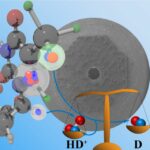
Scientists from Heidelberg, Darmstadt und Mainz publish results in „Nature“ Joint Press Release of the MPI for Nuclear Physics Heidelberg, Johannes Gutenberg University Mainz/PRISMA+ Cluster of Excellence, GSI Helmholtz Centre for Heavy Ion Research Darmstadt and Helmholtz Institute Mainz ...
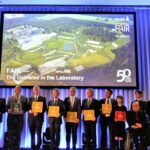
The International Year of the Periodic Table was celebrated in 2019. One highlight was the closing ceremony in Tokyo, where scientists from GSI and FAIR also participated. ...
On November 04, 2019, Raphael Haas won a "Giersch Excellence Award", sponsored by the Stiftung Giersch for outstanding achievements within the PhD phase. ...
Physicists have measured the energy associated with the decay of a metastable state of the thorium-229 nucleus. This is a significant step on the way to a nuclear clock which will be far more precise than the best of today’s atomic timekeepers. ...
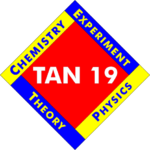
The TAN 19 conference, held in Wilhelmshaven, Germany, August 25 to 30, 2019, was the sixth in the series of international conferences dedicated to recent achievements and developments in experiments and theory of the chemistry and physics of transactinide elements. ...
The six superheavy elements with atomic numbers 107-112 were discovered at GSI. They were produced in nuclear fusion reactions using shell-stabilized target nuclei at and around doubly-magic 208Pb. These reaction partners allow compound nuclei containing all nucleons of the projectile and target nuclei to be produced at low excitation energy. ...
“Is there still room for more elements in the modern periodic table with its currently 118 elements? Will we need another extra series in the periodic table besides the classical s–, p–, and d–block, and the lanthanides/actinides? Will the periodic table in this region still feature periodicity? …" ...
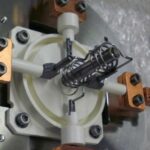
In a current paper in the Journal of the American Chemical Society (JACS), we report the first ionization potentials (IP1) of the heavy actinides, fermium (Fm, atomic number Z = 100), mendelevium (Md, Z = 101), nobelium (No, Z = 102), and lawrencium (Lr, Z = 103). ...
17th Workshop on Recoil Separator for Superheavy Element Chemistry ...
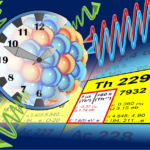
Oscillations in the atomic nucleus of thorium-229 to be used as pulse generator for future nuclear clocks ...
